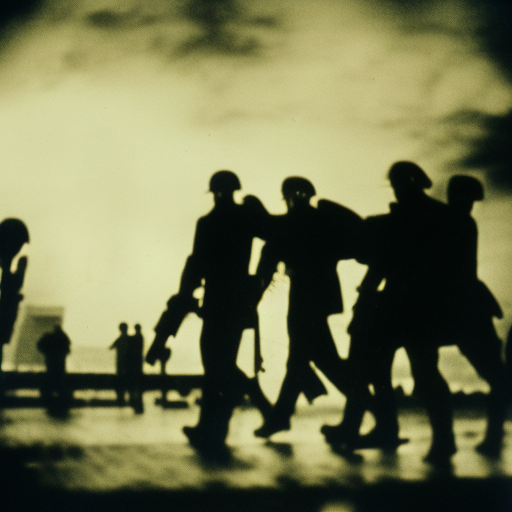Summary: Assassination of Julius Caesar
The assassination of Julius Caesar was a pivotal event in Roman history that took place on March 15, 44 BCE. Caesar, a popular Roman general and statesman, had risen to power and become dictator for life. However, his increasing power and ambition had made him a target for those who feared his growing influence. A group of senators, led by Gaius Cassius Longinus and Marcus Junius Brutus, conspired to assassinate Caesar and restore the Roman Republic.
The Conspiracy
The conspiracy against Caesar began to take shape in late 45 BCE. Many senators, including Cassius and Brutus, were concerned about Caesar’s autocratic rule and his disregard for traditional republican values. They feared that Caesar’s power would undermine the Senate and the Roman Republic itself. Cassius, a skilled manipulator, convinced Brutus to join the conspiracy by appealing to his sense of duty and love for the Republic.
The Assassination
On the Ides of March, March 15, 44 BCE, Caesar was scheduled to attend a meeting of the Senate at the Theatre of Pompey. As he entered the Senate chamber, he was surrounded by a group of senators, including Cassius and Brutus. Suddenly, the conspirators attacked Caesar, stabbing him multiple times. Despite his reputation as a skilled warrior, Caesar was overwhelmed and unable to defend himself. He was assassinated in front of the Senate, dying from multiple stab wounds.
Aftermath
The assassination of Caesar had far-reaching consequences for Rome. Initially, the conspirators hoped that by killing Caesar, they would restore the Republic. However, their actions instead plunged Rome into a period of civil war and political instability. Caesar’s death sparked outrage among the Roman people, who saw him as a champion of the common man. Mark Antony, Caesar’s loyal friend and general, delivered a powerful funeral oration that turned public sentiment against the conspirators.
The Rise of Octavian
In the power vacuum left by Caesar’s death, a struggle for control ensued. Mark Antony aligned himself with Caesar’s heir, Octavian, and together they formed the Second Triumvirate with Marcus Aemilius Lepidus. The Triumvirate defeated the forces of Brutus and Cassius at the Battle of Philippi in 42 BCE, avenging Caesar’s death. However, tensions between Antony and Octavian grew, leading to a power struggle that ultimately resulted in the end of the Roman Republic.
The Legacy of Caesar
The assassination of Julius Caesar marked the end of the Roman Republic and the beginning of the Roman Empire. Caesar’s death exposed the weaknesses of the republican system and highlighted the dangers of unchecked power. It also demonstrated the importance of public support and popular sentiment in Roman politics. Caesar’s adopted son, Octavian, later known as Augustus, would go on to become the first Roman Emperor, ushering in a new era of imperial rule.
In conclusion, the assassination of Julius Caesar was a turning point in Roman history. The conspiracy against him, led by Cassius and Brutus, aimed to restore the Roman Republic but instead plunged Rome into a period of civil war. Caesar’s death sparked public outrage and paved the way for the rise of Octavian and the Roman Empire. The legacy of Caesar’s assassination serves as a cautionary tale about the dangers of absolute power and the fragility of political systems.












